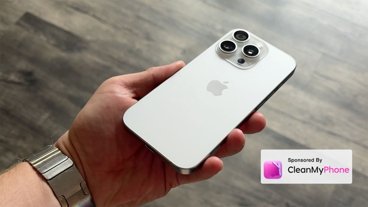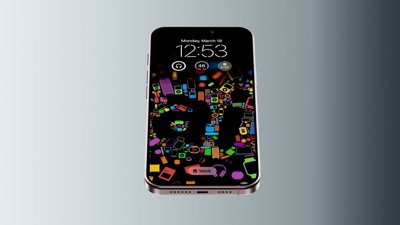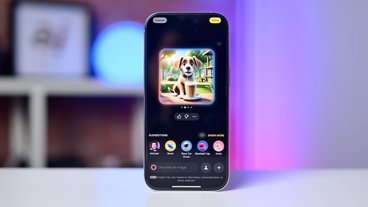The latest — Â and more affordable — high-profile entrant into the emerging virtual reality space, PlayStation VR, is off to a successful start, suggesting consumers are more interested in advanced VR technology if it's available in a simple and economical product.
Apple Chief Executive Tim Cook had repeatedly expressed interest in both virtual reality and augmented reality, stating that he sees potential in both. But while he said VR has some "interesting applications" — Â like games, as the PlayStation VR provides — Cook sees more opportunities in AR, and his company continues to invest accordingly.
As Apple invests, current market players HTC Vive and Facebook's Oculus Rift have seen their corner of the market shaken up by PlayStation VR. New research from SuperData, as publicized by The Information
PlayStation VR officially launched in October starting at $399, and is compatible with the sub-$300 PlayStation 4 game console, of which Sony has already sold millions. In contrast, more powerful Vive and Rift headsets cost hundreds of dollars more, and require expensive Windows PCs that can run well over $1,000.
On the lower end of the market, Samsung sells the Gear VR headset for $100, and Google's Daydream is priced at $79, though both require compatible smartphones and do not offer the same level of performance as PlayStation VR. Even Apple's iPhone can support low-end VR apps with affordable accessories like Google Cardboard.
In a sense, PlayStation VR occupies something of a middle ground — Â more affordable than high-end PC virtual reality, but also more capable than cheap smartphone-based versions.
In uncharacteristic comments about his company's future product plans, Cook has admitted that Apple is "doing a lot of things" in the augmented reality space, calling both it and virtual reality "incredibly interesting."
While virtual reality can transport users to entirely new worlds, augmented reality integrates cameras and sensors to blur the lines between the real world and a virtual one. In Cook's view, augmented reality could eventually amplify human contact.
Augmented reality can be thought of as a layer of digital information overlaid onto the physical world. Advanced versions of the immersive technology use specialized transparent displays, though developers working within contemporary hardware constraints have created effective analogs using smartphone cameras and displays. Niantic's hit game Pokémon Go, available for iOS, is one such example.
Though Apple has yet to outline an official AR strategy, the company is making strategic AR segment purchases like last year's acquisition of motion capture specialist Faceshift and German AR firm Metaio. The company is also developing supporting tech in-house, as evidence by a growing portfolio of AR/VR patents like transparent displays, iPhone-powered virtual reality systems, advanced computer vision tech and more.
Piper Jaffray analyst and AR/VR proponent Gene Munster has predicted that virtual and augmented reality applications and accessories could become part of the official "Made for iPhone" licensing program within the next few years.
 Neil Hughes
Neil Hughes















 Charles Martin
Charles Martin




 Malcolm Owen
Malcolm Owen
 Andrew O'Hara
Andrew O'Hara








16 Comments
Shocking. Who knew that mainstream adoption of a new technology only comes after prices come down--especially for discretionary purchases like entertainment.
Wearing a head set in the privacy of your bed room is one thing, but wide scale usage is not what everyone thinks it will be. This is why Tim keeps saying it could be interesting technology, but apple has yet to jump on the bandwagon.
Think 3D TV how many people bought those and still wear and use the required 3D glasses.
Geeks and Techie love VR headsets but the average Joe and Jane think those who wear this stuff are antisocial and will instagram you into shameville as quickly as they can take your picture and post it so the world can see how ridiculous you look moving your head around and reaching into the air grabbing imaginary things.
Not just price vs performance for PS VR. A lot has to do with brand recognition as well. I know several people who bought a VR headset for Christmas and most went with the Playstation VR because they knew and trusted the brand when it comes to video game hardware/software. HTC, Samsung, Oculus are not exactly household names in the gaming sector.